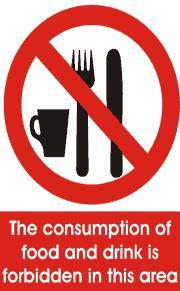 Anyone with an eating disorder has a list of fear foods. Some lists are small, others are massive. Sophie’s list included all foods bar about 5-6 foods she would eat. A very large fear to overcome. Food fears present the challenge of either the forbidden foods can become binge foods or they become foods to be never, ever eaten. Both situations create major problems for the person wanting to recover.
Anyone with an eating disorder has a list of fear foods. Some lists are small, others are massive. Sophie’s list included all foods bar about 5-6 foods she would eat. A very large fear to overcome. Food fears present the challenge of either the forbidden foods can become binge foods or they become foods to be never, ever eaten. Both situations create major problems for the person wanting to recover.
So how do you actually overcome food fears? How does a carer break through those fears? How do you explain the logical to the eating disorder that banishes logical thought? Or how do carers cope with the illogical, paranoid, hysterical fears?
There is no set formula, but I have put together some ideas that we learned, that I have read that go a long way to helping both carer and sufferer.
Focus on your goal
If you are in recovery and have made that choice to get well, then that is your mantra. Food fears can be slowly overcome by just repeating and reminding yourself (several times a day if necessary) that to get well, you have to move past the fears. No it’s not easy, but practice (like learning a new language) makes it easier. Don’t beat yourself up when you give into the fears. Push back next time.
Don’t do it all at once
If your list of forbidden foods is daunting, don’t look at the whole list. Choose ONE food. Break it down so the ability to achieve success is much easier. Don’t set yourself up to lose. Choose the food that is the least scariest. Celebrate when you succeed overcoming the fear of this food.
Block the voice
You know the second you eat the forbidden food, the ED voice in your head is going to go ballistic. Be prepared. Have someone with you, get distraction ideas ready to go, be in an environment that encourages your ‘safe’ space. Again the more you can learn to block the voice, the easier this becomes too.
Trigger foods
Some foods can be triggers in themselves and bring on strong ED habits. Leave those foods til later when you are stronger and have learnt coping tools. Discuss with your counselor or give some in-depth thinking yourself about the feelings that food brings about. By learning what it is that the food reminds you of can help you get past the triggering response.
Have support when you eat
For us this was a big winner. When Sophie wanted to confront a new fear food, she wanted me with her. She’d grab my hand, I’d gently encourage, she’d eat. When she realised the world didn’t end, she was able to eat this new food regularly. It also gave her confidence eventually to eat without me supporting her.
Food fears isolate
Family occasions, celebrations, seasonal times etc all become very scary situations. Forbidden foods are on show, everyone eating them. Many sufferers offer excuses and stay home. Isolated, lonely, angry, frustrated etc. Do you want to keep missing out on these social times? Do you want to miss the bonding and fun they can hold?
Learn about foods
Our dietitian often challenged Sophie’s distorted idea of what foods were made of up. His explaining of the truth as opposed to ‘eating disorder truth’, helped Sophie learn about how healthy and good for her the list of forbidden foods were. She could start to see how illogical her fears were and that they were not based on any truth or reality. There is definitely a point in recovery where logic starts to happen again, and you can use reason and logic in talking to someone in recovery. Use it too soon though and you will only isolate them and create tension.
Being accountable
For some being held accountable is the structure they need. Filling in a meal plan, telling someone in your support team exactly what you are eating, getting them to challenge you and expecting you achieve this next time you see them. Some of us respond better when we have those tougher boundaries put around us.
Set your own reward/step forward patterns
Experiment. We all respond differently. What makes you tick? What would get you to eat one of your fear foods?
